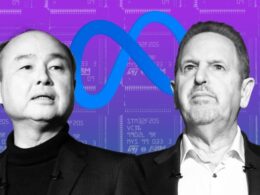Stay informed with free updates
Simply sign up to the Artificial intelligence myFT Digest — delivered directly to your inbox.
At the tail-end of January, artificial intelligence start-up OpenAI released its latest model — a cute-sounding version called o3-mini. Designed to repel cheap Chinese rivals, it chalked up another victory for the sector’s mystifying inability to think up coherent names.
See if you can spot the problem: the o3-mini came out six months after the 4o mini. And the 4o mini was released after the 4, which came out after the 3.5. Last week, co-founder Sam Altman confirmed that the next release would be the 4.5.
OpenAI used to employ sensible, sequential numbers, making its AI models as easy to track as iPhone releases. But when the next great leap of technological progress proved difficult to nail down the company’s naming strategy went skittering off in strange new directions. Instead of going from 3 to 4 it began bolting on additional letters and words.
It’s not as if OpenAI isn’t aware of the problem. Last year, Altman agreed with a commenter who said that he needed a naming scheme revamp. In fact, Altman doesn’t seem too keen on any of OpenAI’s nomenclature. He has described chatbot ChatGPT, its most famous product, as a “horrible” name and told one interviewer that if he could go back in time and pick something other than OpenAI he would.
Weird names are, of course, a tech tradition. Some of the industry’s best-known companies were created in the early 2000s, when nonsense words were cheap to buy as domain names. Think Zynga, Flickr and Zillow.
AI start-ups of the past decade have take a more sensible route (OpenAI, xAI etc) but the sector has continued the custom elsewhere. A few years ago the tech website The Verge noticed a trend for model acronyms with Muppet names, including ELMo, Big BIRD and ERNIE. This appears to have been done for no other reason than researchers amusing themselves and each another.
Inside jokes and names that mean more to the people working on a project than those who might one day use it explain a lot of other apparently odd choices — including Elon Musk’s sassy “anti-woke” chatbot Grok. The word is a tech-person term for understanding something (as in you grok a design). It comes from a 1960s sci-fi novel Musk likes called Stranger in a Strange Land about a human raised by Martians who travels to Earth. In other words, it was chosen not to have resonance with the average user.
Google last year rebranded its own AI chatbot as Gemini, which is also the name of its large language model. What does the name Gemini have to do with AI? Basically nothing. The company’s official explanation notes that it is a constellation linked to a set of twins in Greek mythology and ties in to the importance of an AI assistant having a “dual-natured personality, capable of adapting quickly”.
Perhaps. But there is another, more convincing addendum. Gemini was the name of the Nasa project that propelled the Apollo space programme. It is therefore a signal to employees that this is an ambitious project with the same sort of lasting impact as the moon landings.
Companies with a long history of consumer sales tend to take a more user-friendly approach to AI product names. Microsoft’s AI assistant is Copilot, a neat description for the way in which it is designed to assist users as a copilot helps a pilot.
Still, even those who should know better can’t resist taking things too far. Apple has attempted to hijack AI’s initialism by calling its system Apple Intelligence. Korean tech giant LG has gone one better and calls its home AI system Affectionate Intelligence.
At least OpenAI’s ChatGPT is catchy. Yes, an abbreviation for the generative pre-trained transformer doesn’t do much to explain what it does, but it has caught on as shorthand for all generative AI chatbots.
Last year, however, OpenAI confirmed that it had purchased the URL chat.com, leading to speculation that it might try to jettison the original moniker and rebrand ChatGPT as simply Chat. For an idea of how this would likely be received see the public’s non-compliance with Mark Zuckerberg’s decision to relaunch Facebook as Meta, Google calling its parent company Alphabet and Musk renaming Twitter as X.
Eventually, rational naming strategies for AI may prevail. Dell recently announced that it was going to ditch computer sub-brands such as Inspiron and adopt simple names for its PCs based around the term Pro. Of course, Dell sold its first PC in 1985. If AI follows the same trajectory we’ll have about 40 years to wait.
Source link









